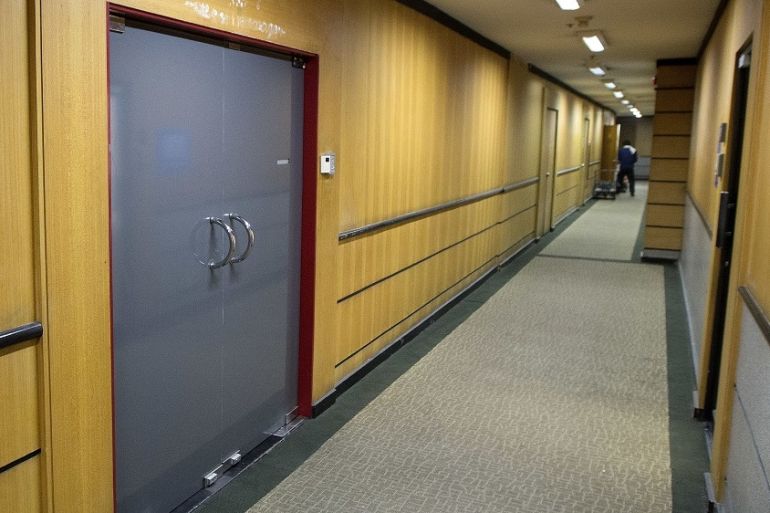Thailand stands by crackdown on ‘illegal’ news
After furore over BBC piece, official said any news deemed harmful to new King will be considered criminal.

Thailand’s government will not back down from prosecuting news outlets that publish “illegal” content, the defence minister said on Wednesday, after the BBC’s bureau in Bangkok came under scrutiny for an article about the country’s new king.
The British broadcaster’s Thai-language service, a relative newcomer, caused a stir when it published an article on King Maha Vajiralongkorn Bodindradebayavarangkun’s personal life as crown prince.
Keep reading
list of 4 itemsWall Street Journal cuts Hong Kong staff, shifts focus to Singapore
Abu Dhabi-backed group ends bid to take over Telegraph newspaper
Two Russian journalists arrested over alleged work for Navalny group
It included details of three marriages that ended in divorce and other material that cannot be published in the Thai news media.
Thailand has strict lese majeste laws against insulting the monarchy, which carry a penalty of three to 15 years in prison. Using the French term, a “lese majeste” crime is one committed against a sovereign ruler.
“Whatever is illegal will be processed accordingly, no exceptions,” Defence Minister Prawit Wongsuwan told journalists.
After the article was published on December 2, the day after Vajiralongkorn ascended the throne, the BBC’s office in Thailand received a number of visits from the Thai army and police.
The BBC closed the office this week but continues to broadcast and publish articles on its website, although the link to the article about Vajiralongkorn is now blocked in Thailand.
“Officials were just doing their jobs when they searched this news agency,” Prawit said.
Internet crackdown
The article sparked outrage among Thai royalists.
Social media groups, such as the Facebook group “V for Thailand”, vigorously criticised the BBC, and posted its Bangkok phone number on their Facebook page, encouraging followers to call and harass people working there.
READ MORE: Wife of UK journalist arrested over Thai royal ‘insult’
Thai police arrested a student on Saturday for sharing the BBC article, releasing him on bail the next day. It was the first arrest under lese the majeste law since Vajiralongkorn became king.
It appeared to be the first lese majeste case involving material produced by a respected mainstream media outlet, although previous cases have involved content from several foreign tabloids.
Mainstream media have had stories about the Thai monarchy censored, by blocking their websites and the voluntary stopping of distribution of editions of magazines and newspapers in Thailand, including the Economist and the International New York Times.
Critics of the lese majeste law, known as Article 112, say it is used to silence political dissidents.
The military regime that took power in a 2014 coup has especially cracked down on commentary on the internet.